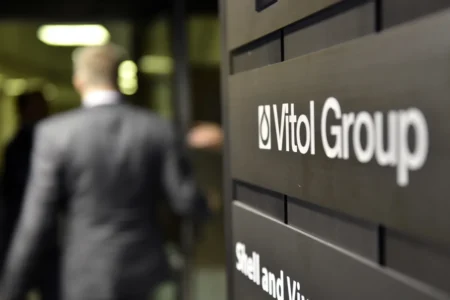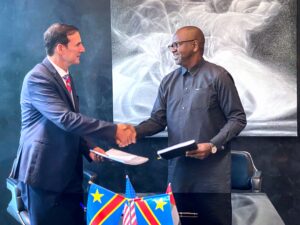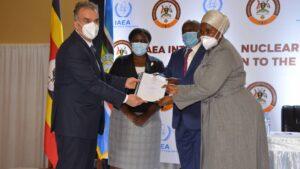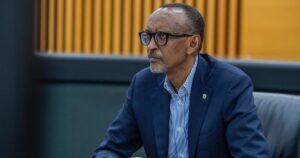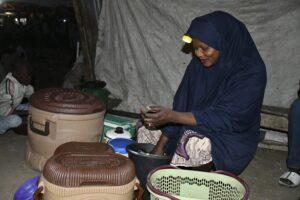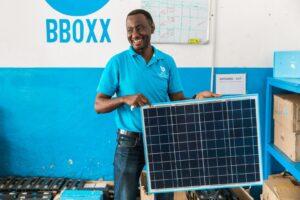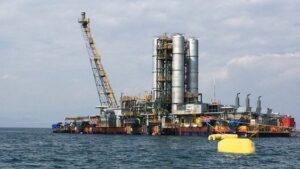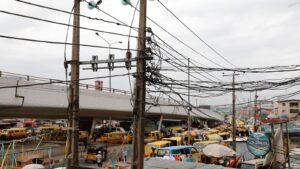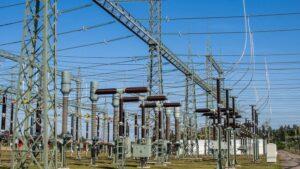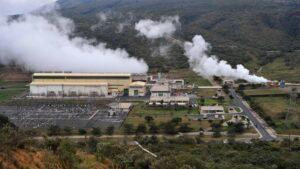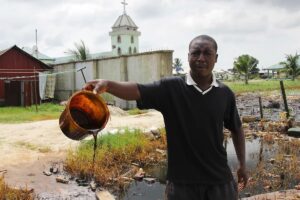- TLcom Capital Raises $154 million in Funding to Boost Its African Growth
- Africa’s $824Bn debt, resource-backed opaque loans slowing growth — AfDB
- LB Investment brings $1.2 trillion portfolio display to AIM Congress spotlight
- AmCham Summit kicks off, setting course for robust future of US-East Africa trade ties
- Why the UN is raising the red flag on the UK-Rwanda asylum treaty
- Portugal’s Galp Energia projects 10 billion barrels in Namibia’s new oil find
- Wärtsilä Energy offers tips on how Africa can navigate energy transition and grid reliability
- Powering Africa: Africa’s Path to Universal Electricity Access
Energy
- The Uganda National Oil Company (UNOC) is directly importing petroleum products from Vitol Bahrain, aiming to reduce reliance on Kenyan firms and mitigate high fuel prices.
- UNOC’s direct importation and sale of fuel to OMCs in Tanzania and Uganda is a significant step towards fostering stronger regional ties, promoting economic growth, and ensuring energy security.
Uganda National Oil Company (UNOC) has started the sale of petroleum products to oil marketing companies in both Uganda and Tanzania.
This is part of a broader strategy to test the waters before UNOC embarks on a direct importation agreement with the global oil titan, Vitol Bahrain. This maneuver signals a new era in East Africa’s energy dynamics, especially following a cooling of relations between Uganda and Kenya over fuel supply mechanisms.
Breaking New Ground: Uganda National Oil Company Direct Importation Deal
For years, Uganda’s fuel supply chain was heavily dependent on Kenyan OMCs. However, …
- The joint development of the Green Giant Project will expedite the construction of the first 200MW phase of the investment.
- Mini-grids account for more than half of all new connections in DRC.
- The agreement represents a significant milestone in the collaborative efforts between SkyPower, AFC, and the DRC.
The Democratic Republic of Congo (DRC), Africa Finance Corporation (AFC) and SkyPower Global have entered into a joint development agreement for the first phase of SkyPower’s Green Giant project in the mineral-rich country.
The move is meant to promote the use of renewable energy in the Eastern African state. This 200MW Phase one is a crucial step towards achieving the landmark 1,000MW Solar Power Purchase Agreement (PPA) signed between SkyPower and the DRC’s state-owned utility, Société Nationale d’Electricité (SNEL).
The partnership brings together SkyPower’s extensive experience in developing large-scale solar projects and AFC’s successful track record of de-risking and funding well-structured power …
- Uganda signed a deal with China under which the China National Nuclear Corporation(CNNC) would assist its endeavours to tap into one of the few Nuclear energy sources in Africa.
- The first nuclear project, Buyende Nuclear Power Plant, will be located in Buyende, approximately 150 km(93 miles) north of Kampala.
- Uganda has an estimated 52000 square kilometres of uranium deposits around Buganda, Toro, Ankle and Bunyoro.
Africa takes the next step in its evolution as Uganda announced its plans to generate at least 1000 MegaWatts(MW) from its nuclear power plant by 2031. This lines up with its efforts to identify alternative energy solutions that guarantee faster and more efficient electricity production. Uganda will become one of the few countries to produce nuclear energy in Africa, further boosting its economic growth exponentially.
Uganda first discovered its uranium deposits in 2004, and since then, nuclear power became a valid option for the country. …
- Data by the World Bank Group reveals that Kenya’s electrification rate currently stands at 70 per cent
- Easing the financial access barrier for end-users has improved the uptake of home solar systems over the past decade.
- The Kenya National Electrification Strategy highlights the Kenyan government’s plans to scale up off-grid electrification with ambitions to establish two million new connections through standalone solar home systems by 2022.
Bboxx Kenya is set to receive a US$14 million (Ksh1.6 billion) loan facility from SBM Bank Kenya aimed at connecting 470,000 Kenyan households to renewable energy sources.
GuarantCo, a fund backed by the governments of UK, Switzerland and Australia among others, is guaranteeing Ksh1.2 billion or 75 percent of the loans.
“SBM Bank is elated to spur the growth of the energy sector in Kenya through partnerships with like-minded entities such as Bboxx and GuarantCo,” SBM Bank Kenya’s deputy chief executive officer Jotham Mutoka …
- Extracts from Lake Kivu are sustainable as it would take centuries to exhaust the gas already accumulated in the lake.
- Darchambeau says that an explosion of Lake Kivu would present a risk to over two million people in both Rwanda and the Democratic Republic of Congo.
- The Rwandan government made a US$400 million concession agreement with Gasmeth Energy to process and compress the methane gas onshore to create compressed natural gas (CNG).
Rwanda has come up with an invention of its kind, The KivuWatt power station. The energy producer lies somewhere between a renewable and non-renewable source of energy.
For thousands of years, volcanic activity in Lake Kivu has caused a massive accumulation of carbon dioxide and methane to dissolve in the depths of the water. The Engineers of the KivuWatt company have discovered a way to generate electricity from the lake.
There are only three such lakes: Lake Kivu, …
Kenya Insights reported that the ship (MT Jag Prarena) docked at the Port of Mombasa on December 30 and was offloaded for nearly three days. Four other vessels that had gone through the legal importation process we kept at bay, incurring approximately Ksh100 million (US$88 million) in demurrage charges.
OMAK said that Gulf had imported the petrol contrary to the petroleum act 2019, with the importation and offloading of the cargo being done outside the Open Tender System (OTS).
The act prohibits private imports of refined petroleum products using state-owned common user facilities.…
President Muhammadu Buhari said in an interview with Sun Nigeria that he was discontented with electricity in Nigeria.
The All Electricity Consumers Protection Forum expressed the same discontent with the power sector and pointed the slow progress in the power sector to the Nigerian Electricity Regulatory Commission (NERC).
The forum has advised President Buhari to do away with the power regulator in the country, NERC, and move the responsibilities to the Federal Competition and Consumer Protection Commission (FCCPC).…
- In pursuit of bringing about electrification to the continent, the energy sector was abuzz with activity in 2021
- In September 2021, for instance, Uganda launched the last-mile connectivity component to connect 87,500 rural households with affordable electricity
- In June 2021, the World Bank Board approved US$200 million in International Development Association (IDA) funding to help Benin improve its access to electricity services for households, businesses, and essential public services
Africa is the world’s least electrified continent, with nearly 600 million people in sub-Saharan Africa or 53 per cent of the population still living in the dark in 2021, according to data by The Economist.
In pursuit of bringing about electrification to the continent, the energy sector was abuzz with activity in 2021. Below are some of the most significant electrification projects that have been ongoing in Africa in the past year.
- Uganda’s last-mile connectivity project
In September 2021, Uganda launched
While the world is fighting for zero-carbon neutrality, Africa’s—and Kenya’s—struggle to achieve a zero-carbon footprint is being met with foreign challenges and local corruption.
Experts have lauded the government’s plan to shift Kenya’s energy to purely clean energy by 2030.
In October 2021, President Uhuru Kenyatta told attendees of the COP26 summit that the country would achieve the milestone, seeing that it was more than half-way there already.
“Renewable energy in Kenya currently accounts for 73 per cent of the installed power generation capacity, while 90 per cent of the electricity in use is from clean sources,” he told attendees, among them US President Joe Biden and UK Prime Minister Boris Johnson. “We are on course to achieve our target of 100 per cent use of clean energy by 2030 and to achieve 100 per cent access to clean cooking by 2028,” Kenyatta said.
The Exchange Africa sought the views





